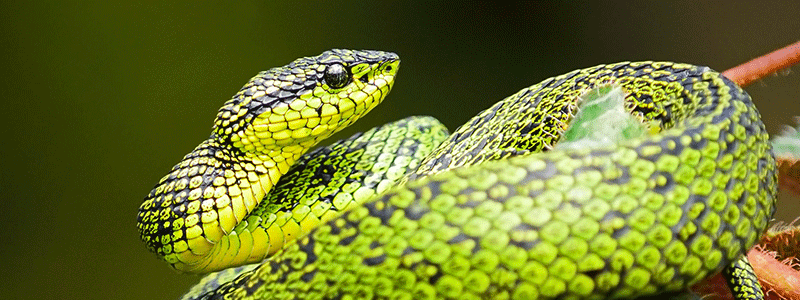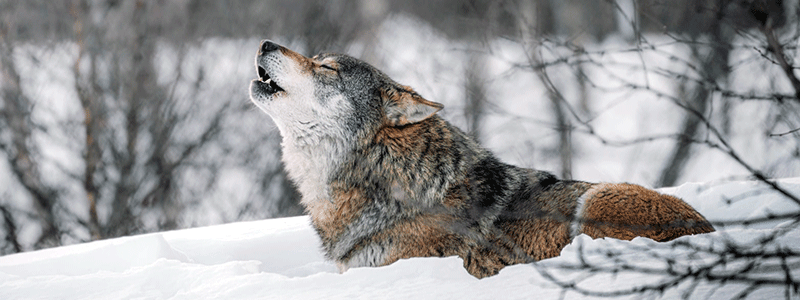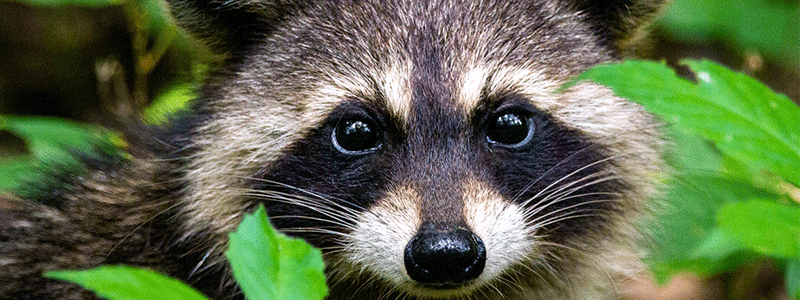
Happy World Wildlife Day!
The term “wild animal” comprises those species of which populations still exist in a wild state, in the country of origin - a species whose collective behaviour, life cycle or physiology remains unaltered from the wild conspecific despite their breeding and living conditions being under human control for multiple generations. This means that a lot more animals than most people realise really are wild. Picking up, handling, keeping, feeding and playing with a wild animal is vastly different than for animals that we call domesticated animals.
Domesticated animals, like our cats, have been selectively bred over thousands of years and generations and are genetically determined to be tolerant of humans. So, they often lack natural instincts that would help them survive in the wild, allowing them to avoid fear, and in many cases seek out the attention of people.
But wild animals have the natural instincts to survive in the wild. Humans are not a part of that wild, or at least if they were, they would be a threat to these animals’ safety. So, when we play, cuddle and pet wild animals (like reptiles, birds or snakes), while they may not look or sound distressed, in fact their instincts are telling them they are in danger and they often exhibit behaviours, that only animal behavioural experts can detect, that show they are suffering greatly.
Moreover, these animals are hardwired to need a wide range of conditions that only nature can provide. Being transported, trained, caged and confined doesn’t allow these animals to live how they naturally need to.
So how does Eurogroup for Animals work to protect wild animals? Here are our most pressing areas of concern:

Regulate the Exotic Pet Trade with a Positive List
What – A Positive List is a list of animals that are allowed to be kept and traded. This tool is the single most effective and efficient measure to reduce the suffering of exotic animals being kept unsuitably as pets in Europe.
Why – There are more than 200 million pets in Europe, including mammals, birds, reptiles, fish and amphibians. However, many species, especially exotic animals, are unsuited to a life in captivity. This may result in severe animal welfare problems, and can also be detrimental to biodiversity, have a negative impact on public health, and present a danger to the health of other animals.
How can you help? – Click on this link to log into the Conference on the Future of Europe website, and endorse our “IDEA” on the Positive List.

EU-wide ban of the use of wild animals in the circus
What – Use of wild animals in circuses is not only a problem for animal welfare, but also an important issue of public safety and security. Wild animals are unpredictable and can be very dangerous to people. The temporary nature of travelling circuses and the close proximity of these animals to the public means that this type of public entertainment can never be entirely safe. 24 EU Member States already adopted a national ban, why not the remaining three? (Germany, Italy, Spain).
Why – 478 incidents involving 889 wild animals have been recorded in EU circuses in the past 24 years – Read this report on Wild Animals in EU Circuses : Problems, Risks and Solutions.
How can you help? – Click on this link to log into the Conference on the Future of Europe website, endorse our “IDEA” on the EU-wide ban of wild animals in circuses.

End trophy hunting imports into the EU
What – Trophy hunting is the hunting and killing of animals for sport or pleasure, in order to acquire parts, or whole bodies as trophies. Current EU legislation allows the import and export of hunting trophies from threatened and protected species.
Why – The EU is the second largest importer of hunting trophies, and since 2016, the largest importer of lion trophies in the world. Many species victim to trophy hunting are classified as vulnerable, endangered or critically endangered in the IUCN Red List of Threatened Species, such as the African elephants and lions, and their populations must be protected to conserve our natural heritage.
How – EU Ban on the import of Trophy Hunting into the EU. This should be a priority in the revision of the Action Plan against Wildlife Trafficking
How can you help? – Sign this petition in the EU PETI Committee.

Ensure the protection of large carnivores
What – Wolves and other large carnivores are strictly protected species in the EU, thanks to the highly successful Habitats Directive and the Bern Convention on the Conservation of European Wildlife and Natural Habitats. Sometimes, when the appropriate protective measures are not used, wolves can depredate livestock leading to conflict between wolves and livestock farmers.
Why – Lobby groups are trying to change the conservation status of wolves and other large carnivores. This will set a bad precedent for other animals and will allow the brutal killing of more wolf families.
How can you help? – Sign this petition to stop the hunt of 20 wolves in Finland. Help in his area could set an example for other Member States doing the same thing.

Ensure the humane management of Invasive Alien Species (IAS), or other condemned species
What – Invasive Alien Species (IAS) are animals and plants that are introduced accidentally or deliberately into a natural environment where they are not normally found, with serious negative consequences for their new environment. The EU IAS Regulation requires restrictions on keeping, importing, selling, breeding and growing. Member States also need to ensure they reduce introduction pathways for invasive species, they need to be able to detect and eradicate newly invasive species, and manage longer term and to manage species that are already widely spread in their territory. This should be done through effective, non-lethal methods that reduce animal suffering as much as possible.
Why – Currently, the regulation has resulted in the hunting and non selective trapping of huge numbers of individuals causing immeasurable suffering of animals in the list of Invasive Alien Species of Union concern (the Union list). These animals also become labelled as “pests” and “vermin”, meaning welfare concerns are often ignored. The same can be said for other animals that are not on the list.
How can you help? – Read and share our position paper on African Swine Fever and learn how hunting is not the answer.

End the import of kangaroo meat and skin products into the EU
What – In the last couple years, the EU has been Australia’s main market for the country’s kangaroo meat and skin exports. There are three major concerns with kangaroo hunting:
- Animal welfare – this hunting is cruel as up to 40% of kangaroos that are commercially killed are not shot in the brain, as required, and joey’s skulls are often crushed by swinging their heads against a vehicle.
- Animal conservation – there are serious doubts about how Australian authorities are counting certain species.
- Sanitary concerns – dead kangaroos are transported, sometimes all night long, in unrefrigerated open trucks and kangaroos harbour multiple pathogens including salmonella species and toxoplasmosis. Kangaroo meat is routinely washed with lactic or acetic acid to reduce and hide the systemic contamination.
Why – Although these animals are suffering in Australia, the EU can act by prohibiting the imports of kangaroo meat and products.
How can you help? – Watch this video, and read the report Kangaroo: from Australian icon to meat and luxury leather for the EU.

